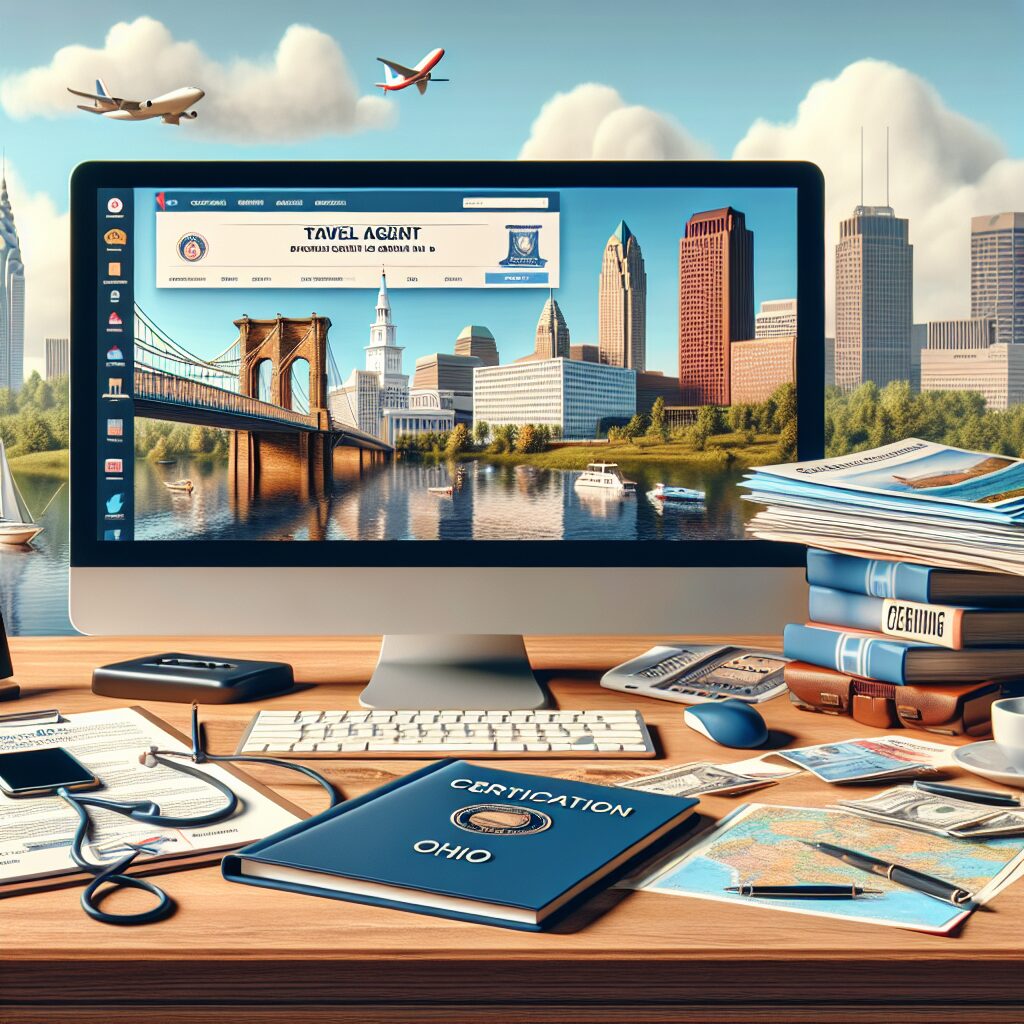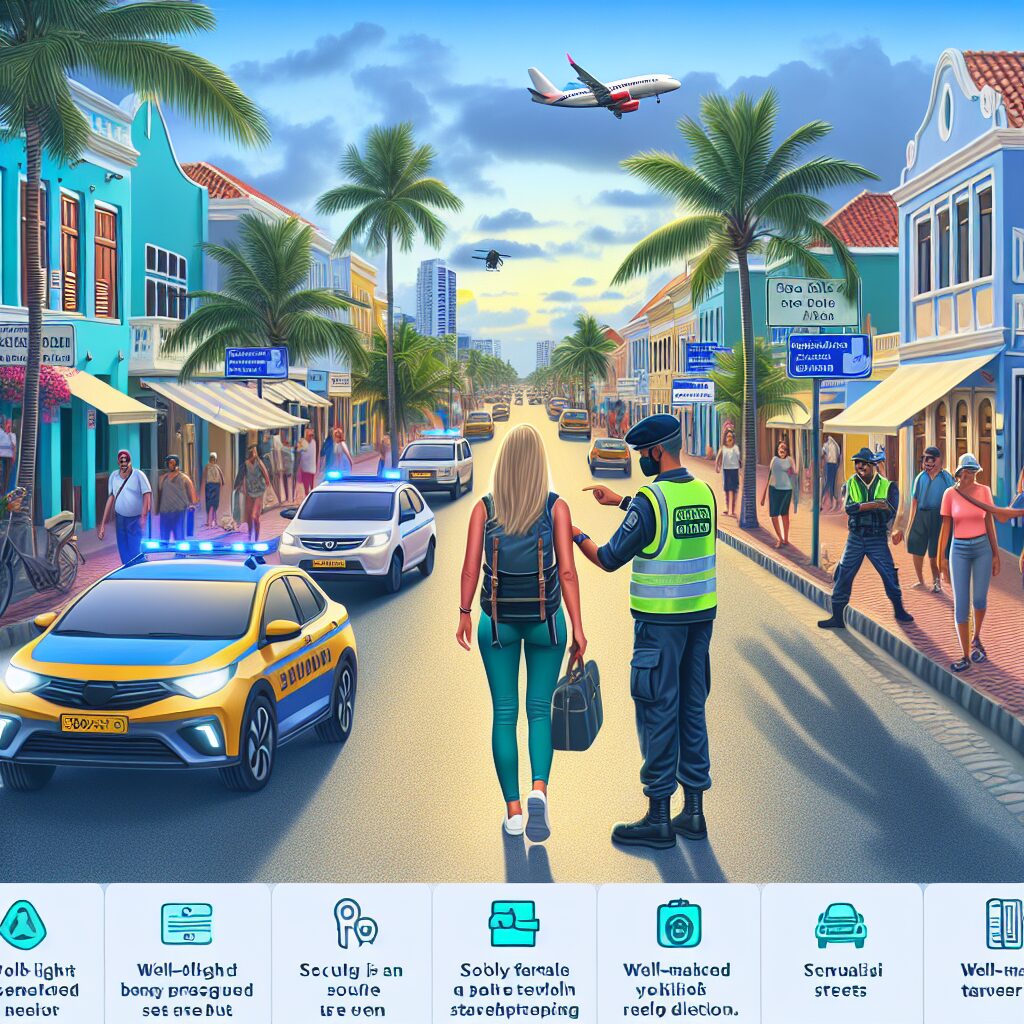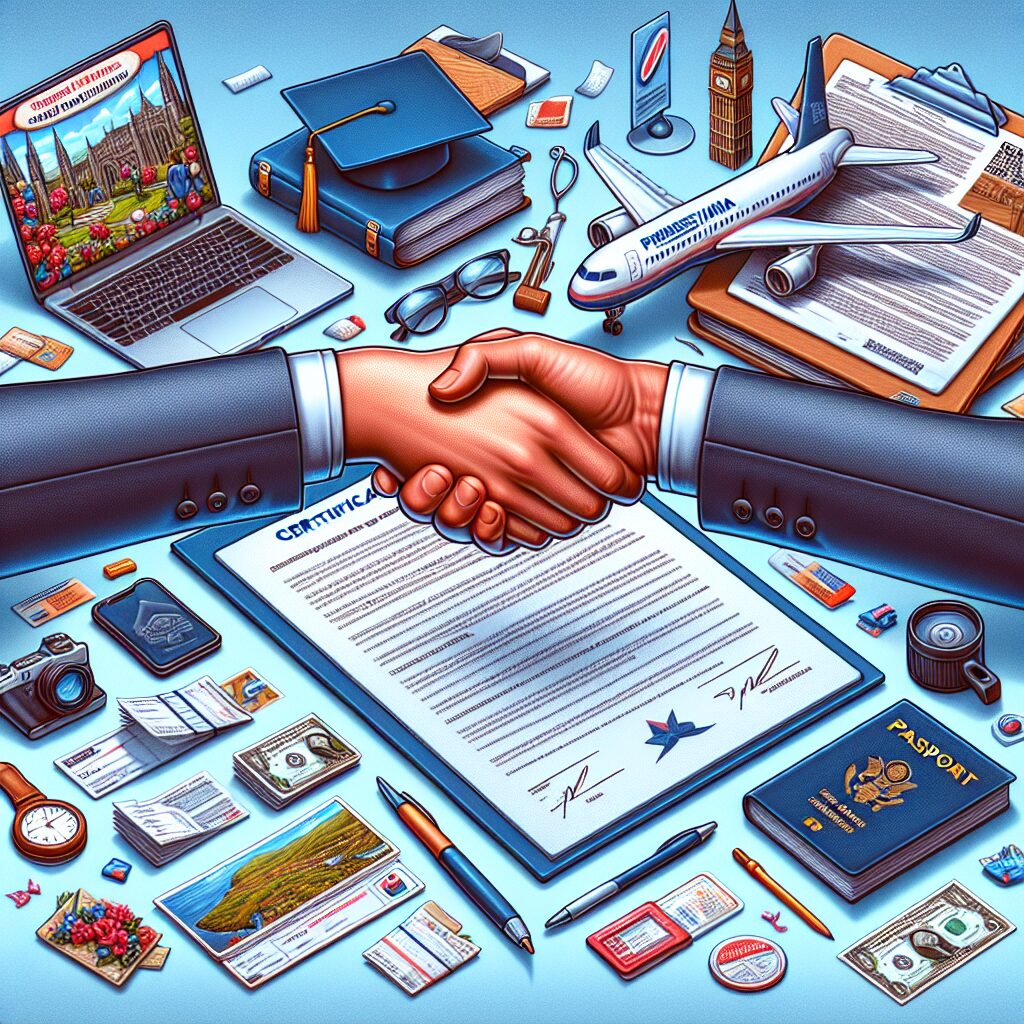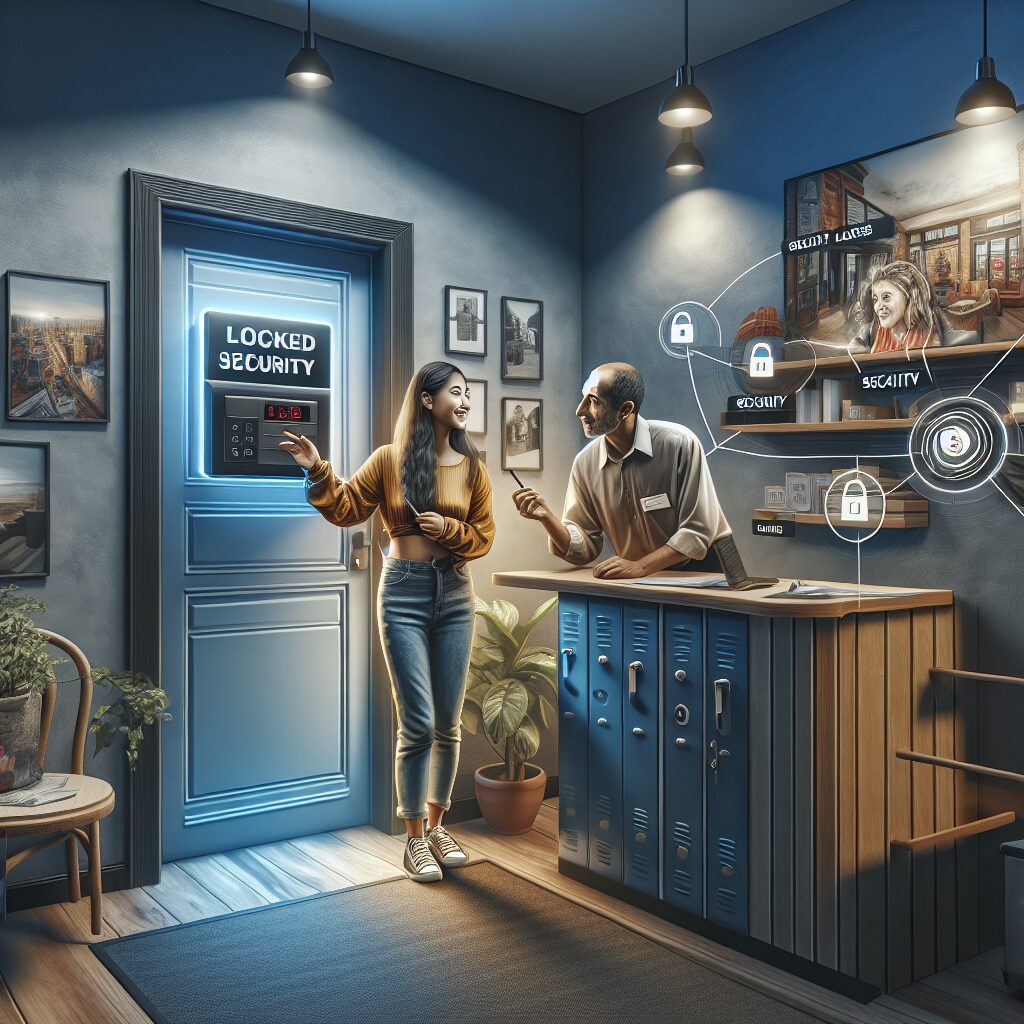Embarking on a career as a travel agent in Georgia can open up a world as rich and varied as the destinations you’ll be helping others to explore. In this vocation, agents become architects of dreams, crafting tailored getaways and business trips that can transport individuals from the peach-laden orchards of Georgia to the farthest flung corners of the globe. Travel agents are the unsung maestros of logistics, offering a personalized touch that no search engine can replicate. Their unique knack for understanding intricate travel systems and leveraging industry relationships makes them indispensable to travelers seeking seamless experiences. In Georgia, travel agents don’t just sell travel; they sell escapism, culture, and memories, all wrapped up in one perfectly planned itinerary.
As we delve further into the picturesque journey of becoming a travel agent in the Peach State, we will uncover the stepping stones to making this your reality. From acquiring the right blend of education and certifications to learning the art of connecting with clientele in a way that resonates with the southern charm of Georgia, the path is as exciting as the destinations you will promote. The upcoming segments of this article will navigate you through the essential prerequisites and credentials, all while highlighting the business acumen needed to thrive in this competitive field. Stay tuned as we map out the critical waypoints on the route to becoming a savvy travel agent, where your newfound expertise will become the compass guiding adventurers to their next unforgettable Georgia getaway.
Essential Insights
1. To become a travel agent in Georgia, individuals must first gain a comprehensive understanding of the travel industry through education or experience. This can be achieved by completing a relevant certificate or degree program in tourism, hospitality management, or a related field, or through hands-on experience in a travel-related job. Many community colleges and trade schools in Georgia offer programs tailored to those looking to enter the travel industry.
2. Prospective travel agents are encouraged to obtain professional certification to enhance their credentials, as it can lead to a broader range of job opportunities and potentially higher income. There are several well-recognized certifications available, such as Travel Institute’s Certified Travel Associate (CTA) or Global Business Travel Association (GBTA) certifications. Acquiring certification typically involves completing coursework and passing an examination.
3. It’s crucial for aspiring travel agents to develop a strong set of skills, including salesmanship, customer service, communication, and organizational abilities, as well as a firm grasp of travel reservation systems and proficiency in information technology. These skills are integral to success in the field, where agents must expertly advise clients, manage travel plans, and remain adaptable to the dynamic nature of the travel industry.
4. Networking and joining professional associations, such as the American Society of Travel Agents (ASTA) or the National Association of Career Travel Agents (NACTA), can prove valuable. Membership in these organizations can provide access to industry resources, educational opportunities, networking events, and community forums, all of which can help new agents establish a foothold in the industry and stay updated on travel trends and practices.
5. Finally, starting a career as a travel agent can entail working for an established travel agency, an airline, a hotel, or starting an independent travel consultancy. It’s important to research Georgia’s specific legal requirements for starting and running a travel business, which can include registering the business, understanding state-specific consumer protection laws, and acquiring any necessary licenses or permits related to selling travel services.
What Are the Steps to Becoming a Travel Agent in Georgia?
Educational Requirements
In Georgia, becoming a travel agent doesn’t strictly require a higher education degree, but prospective agents may benefit from postsecondary education. Relevant fields of study include hospitality, tourism, business administration, or communications. Many community colleges and trade schools offer tourism-related programs that award diplomas or certificates specifically in travel planning or travel agency operations.
Acquiring Specialized Training
While not mandatory, many travel agents gain an edge in the industry by completing specialized training programs. These may be provided by travel schools accredited by the International Air Transport Association (IATA) or the American Society of Travel Agents (ASTA). Additionally, many travel agent networks offer their own training programs which often lead to professional certifications.
Consider Certification
Certification can enhance a travel agent’s credibility. The Travel Institute offers certifications like Certified Travel Associate (CTA) and Certified Travel Counselor (CTC). The criteria for certification typically include a combination of education, experience, and passing an exam. Achieving certification can be particularly advantageous for independent agents looking to demonstrate their professionalism to clients.
Learn State-Specific Regulations
Unlike some states, Georgia doesn’t require travel agents to obtain a seller of travel license. However, it’s important to stay informed about any business licenses required to operate legally within the state. Stay updated on state-specific regulations by visiting Georgia’s official government website or consulting with a local business attorney.
Gain Practical Experience
Hands-on experience is vital. Aspiring travel agents can start by seeking internships or entry-level positions at travel agencies. Working under experienced travel advisors, beginners can learn crucial aspects of the job such as planning itineraries, booking accommodations, and understanding travel insurance policies. Another route is an apprenticeship, where one can gain practical experience while being mentored by a seasoned professional.
Developing Business Skills
Should you choose to start your own travel agency, business acumen is essential. Prospective agents should familiarize themselves with business management, marketing strategies, and accounting principles. Understanding online travel booking software and customer relationship management tools is also crucial.
Networking and Professional Associations
Networking is essential in the travel industry. Joining professional associations like ASTA or attending industry events can present opportunities for meeting industry insiders, finding mentors, and learning about the latest trends and destinations.
Marketing Your Services
A successful travel agent must adeptly market their services. This involves creating an attractive and functional website, leveraging social media platforms, and considering search engine optimization (SEO) to increase visibility. Offline marketing tactics, such as participating in local events, can also be beneficial.
Understanding Niche Markets
Specializing in a particular niche market, such as luxury travel, cruises, or a specific geographic region, can set an agent apart from competitors. By gaining in-depth knowledge and tailoring services to clients interested in these niches, agents can establish themselves as experts and build a loyal client base.
Continuing Education and Staying Current
Consumer travel interests and industry regulations change over time. Travel agents should commit to ongoing professional development through webinars, travel industry conferences, and educational travel experiences. Keeping abreast of new destinations, travel technologies, and client preferences is crucial for long-term success.
Which Tips Are Critical for Succeeding as a Travel Agent in Georgia?
- Stay informed about local and international travel regulations and industry trends.
- Build a strong online presence with an effective website and active social media accounts.
- Consider specializing in a niche market to distinguish your services.
- Develop a network of suppliers and partners to offer comprehensive travel packages.
- Focus on delivering excellent customer service to build and maintain a client base.
- Keep learning and enhancing your skills through continuing education opportunities.
What Are the Basic Requirements to Become a Travel Agent in Georgia?
To become a travel agent in Georgia, you must be at least 18 years old and have a high school diploma or equivalent. Additional qualifications may include completion of a travel agent certification program and experience in customer service or the hospitality industry.
Do I Need a License to Operate as a Travel Agent in Georgia?
No, you do not need a specific license to operate as a travel agent in Georgia. However, staying informed about state regulations and obtaining voluntary certifications can enhance your credibility and expertise in the field.
Are There Any Certifications Available for Travel Agents in Georgia?
Yes, there are several certifications available for travel agents. These include the Certified Travel Associate (CTA), Certified Travel Counselor (CTC), and Travel Industry Certified Professional (TICP). While not mandatory, they can bolster your skills and marketability.
Is Prior Experience Needed to Become a Travel Agent in Georgia?
Prior experience in the travel industry can be beneficial, but it is not strictly necessary. Many agencies offer on-the-job training, and there are entry-level positions for those who are new to the industry.
What Kind of Training Programs are Available for Aspiring Travel Agents?
Aspiring travel agents can enroll in various training programs, such as online courses, community college classes, or specialized travel school programs. These programs typically cover topics such as travel reservations, sales techniques, and destination knowledge.
How Can I Find Job Opportunities as a Travel Agent in Georgia?
Job opportunities can be found through online job boards, networking within the industry, attending job fairs, or by directly contacting travel agencies and related businesses in Georgia.
Can I Work from Home as a Travel Agent in Georgia?
Yes, with advancements in technology and communication, many travel agents in Georgia have the opportunity to work from home, either as independent contractors or for a travel agency that supports remote arrangements.
What Are the Expected Earnings for a Travel Agent in Georgia?
The earnings of travel agents in Georgia vary based on experience, specialization, and clientele. Earnings can be commission-based, salary-based, or a combination of both. While entry-level agents may start with lower earnings, there is potential for growth within the industry.
What Skills Are Essential for Success as a Travel Agent?
Key skills for success include strong communication, customer service, salesmanship, organization, attention to detail, and a passion for travel. The ability to use travel booking software effectively is also important.
How Can I Stay Informed About the Latest Travel Trends and Destinations?
Staying informed can be done through continuous education, attending industry events and seminars, subscribing to trade publications, following travel blogs, and networking with other professionals in the travel industry.
Final Thoughts
Becoming a travel agent in Georgia presents an exciting opportunity for those with a love for travel and a knack for customer service. While no specific licensing is required, professional certifications and adequate training can greatly enhance your expertise and credibility in the field. As travel continues to evolve, staying abreast of industry trends and technology will be key to providing excellent service and crafting memorable travel experiences for your clients. The combination of proper education, effective networking, and continuous professional development will pave the way for a rewarding career as a travel agent in Georgia.
Whether starting from scratch or transitioning from another profession, the journey to becoming a travel agent is filled with learning opportunities and the promise of a dynamic, fulfilling career path. The prospects of working from home, flexible hours, and the chance of traveling the world are just a few of the perks that come with this profession. With dedication, passion, and a customer-first approach, success as a travel agent in Georgia is both achievable and potentially lucrative.











